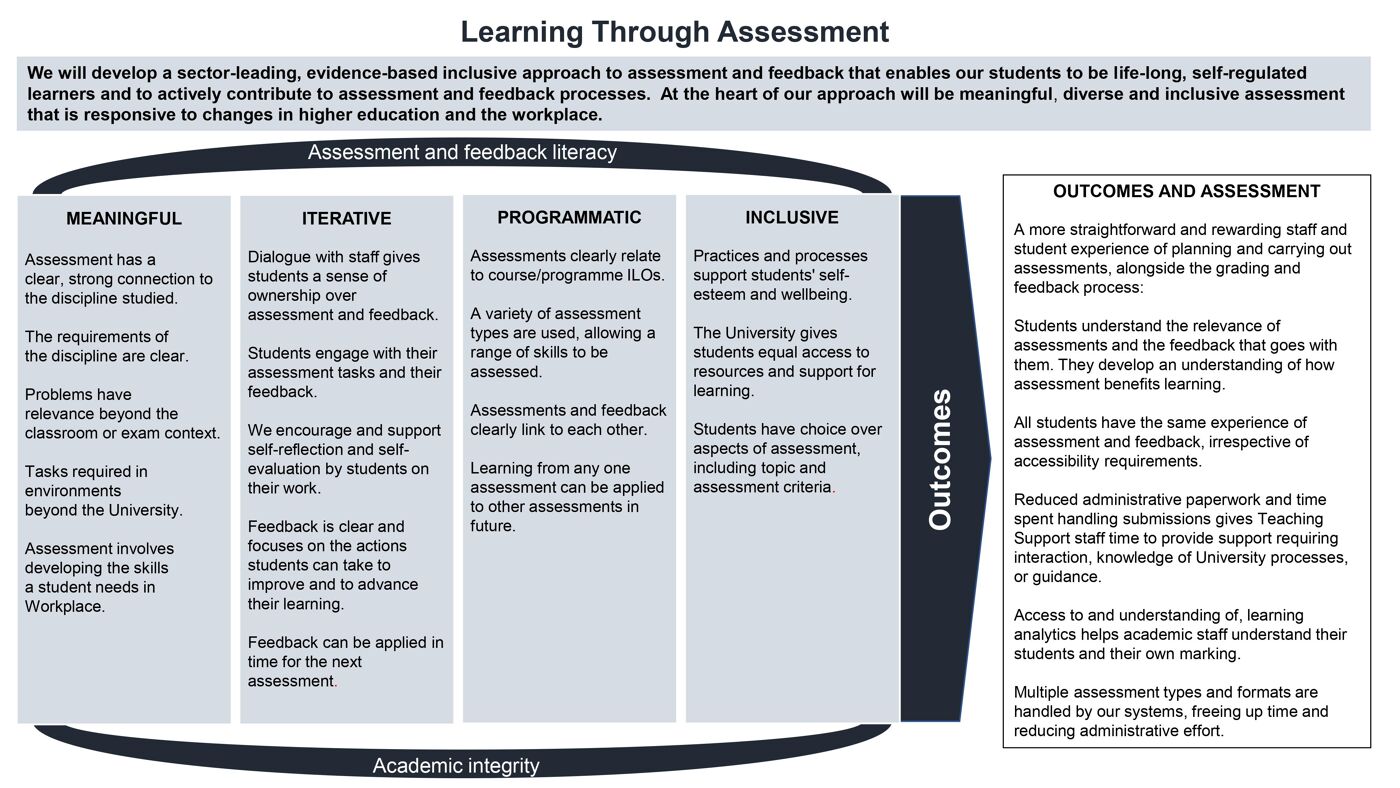Assessment & Feedback Resources Hub

Learning Through Assessment sets out our approach to assessment and feedback at the University of Glasgow.

Learning Through Assessment Framework
The LTA Framework is available for UofG staff to view here:
Meaningful Assessment
Meaningful assessment (also known as authentic assessment) helps students develop subject-area knowledge, as well as knowledge and skills that may be useful for them in other contexts. By making assessments more meaningful, we can improve the quality and depth of students’ learning, increase their autonomy, and improve their commitment to and motivation for learning.
Iterative Assessment
Iterative assessment suggests that students are reviewing their performances and building incrementally on their assessment and feedback experiences across courses and years of study. It helps students to become independent and to self-regulate their learning; it develops their understanding of what they can and need to learn from assessment and feedback, and it gives them the opportunity to be participants in a dialogue with staff and peers, rather than being passive recipients of feedback.
Programmatic Assessment
Programmatic assessment implies that assessment is organised across a programme, rather than for individual courses. This programme structure allows for iterative assessment practices to flourish, and for students to engage with the assessment process more meaningfully. Assessments are linked across courses and programmes, giving students a connected learning experience, and helping staff reflect on what they assess, and why and how they do this. Assessment on one course may prepare a student for the content covered in the next course or can tie into assessment of a student’s performance across their whole programme.
Inclusive Assessment
Inclusive assessment and feedback mean that all students have the same opportunities to learn through assessment and are treated equitably throughout the assessment and feedback process. Inclusive assessment and feedback practices would help to reduce the awarding gap between different groups of students, such as those based on ethnicity, disability, and/or gender, or their social and cultural capital.
L&T Strategy Common Language
Find a full list of common language definitions for L&T Strategy here:

